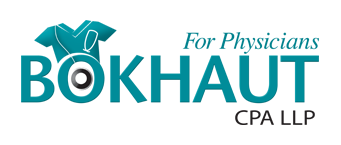As veterans of higher education, physicians often anticipate that their children will carry the torch of...
I Just Called to Scam You
You May Also Like…
How to determine if it’s CRA on the line.
Over the past few years, scam phone calls from individuals claiming to be from the Canada Revenue Agency (CRA) have increased. As we approach the time of year to file personal tax returns, these calls become more frequent as scammers seek to take advantage of the tax season.
These scam callers can seem quite legitimate and often use intimidation to gather information.
If you think the call may be a scam, the best option is to hang up and contact CRA directly on their main personal or business lines. An agent at CRA should be able to review your file and confirm if the call was legitimate.
Real CRA agents have policies and scripts which they are required to follow. If the call you receive deviates from the below, you may have been contacted by a scammer:
- A CRA agent will always identify themselves by name.
- The CRA will never “confirm your identity” with information that is not available on your personal tax return (ex. a credit card number).
- The CRA will never issue threats of arrest or sending law enforcement. Most scam callers will become angry or argumentative if questioned.
- The CRA will never request payment of taxes in the form of gift cards, cryptocurrency, or any other unusual form of payment.
- The CRA will never contact you to recommend or assist in applying for benefits.
If you are unsure about the caller, ask and make note of the following information:
- Name
- Agent ID
- Phone Number
- Office Location
If the caller refuses to or cannot provide this information, it is very likely a scam.
The CRA phone numbers are:
Personal – 1-800-959-8281
Business – 1-800-959-5525
For more information on reasons CRA may contact you and how to report a potential scam, please follow the link below:
* This article was prepared on January 27, 2023. Content is for informational purposes only and is not intended to be used as professional advice. Each taxpayer’s circumstances are unique. Bokhaut CPA makes no representation as to the accuracy and completeness of the information in this article and will not be liable for any errors or omissions in this information.
You May Also Like…
Fall Economic Update 2022 – A 5 Minute Summary of the Relevant Provisions for Physicians
Overall Analysis: New details were scarce in the 2022 Fall Economic Statement; for the most part, the Honorable Chrystia Freeland provided more detail on the 2022 Budget Proposals. In summary, the provisions most relevant for physicians were as follows: PROPOSAL:...
Moving Expenses: When are they deductible for physicians?
Are you a physician who moved in 2022, or are considering a move in 2023? If so, your moving expenses may be deductible for tax purposes. Are you eligible to claim moving expenses? To claim moving expenses, you must meet the following criteria outlined by CRA: One...
First Home Savings Account (FHSA) – Newly Announced Updates to the Program
This article has been updated for the draft legislation proposals from the Department of Finance ‘Design of the Tax-Free First Home Savings Account’ Backgrounder, released August 9, 2022.. On April 7, 2022, the Federal Government released a budget with two new...
The Self-Employed Physician
How to Organize Yourself for Personal Tax Filing Step 1: Be Aware of Your Income & Expenses As a self-employed physician, fee-for-service income can come from a variety of sources, including various health authorities (WRHA, NRHA, IERHA, etc.),...
4 Common Tax Questions from Manitoba Resident Physicians
The most frequent questions we receive from resident physicians relate to their ability to claim various tax credits and deductions. This is often complicated by their participation in various assistance or rebate programs and the continuing cost of their medical...







